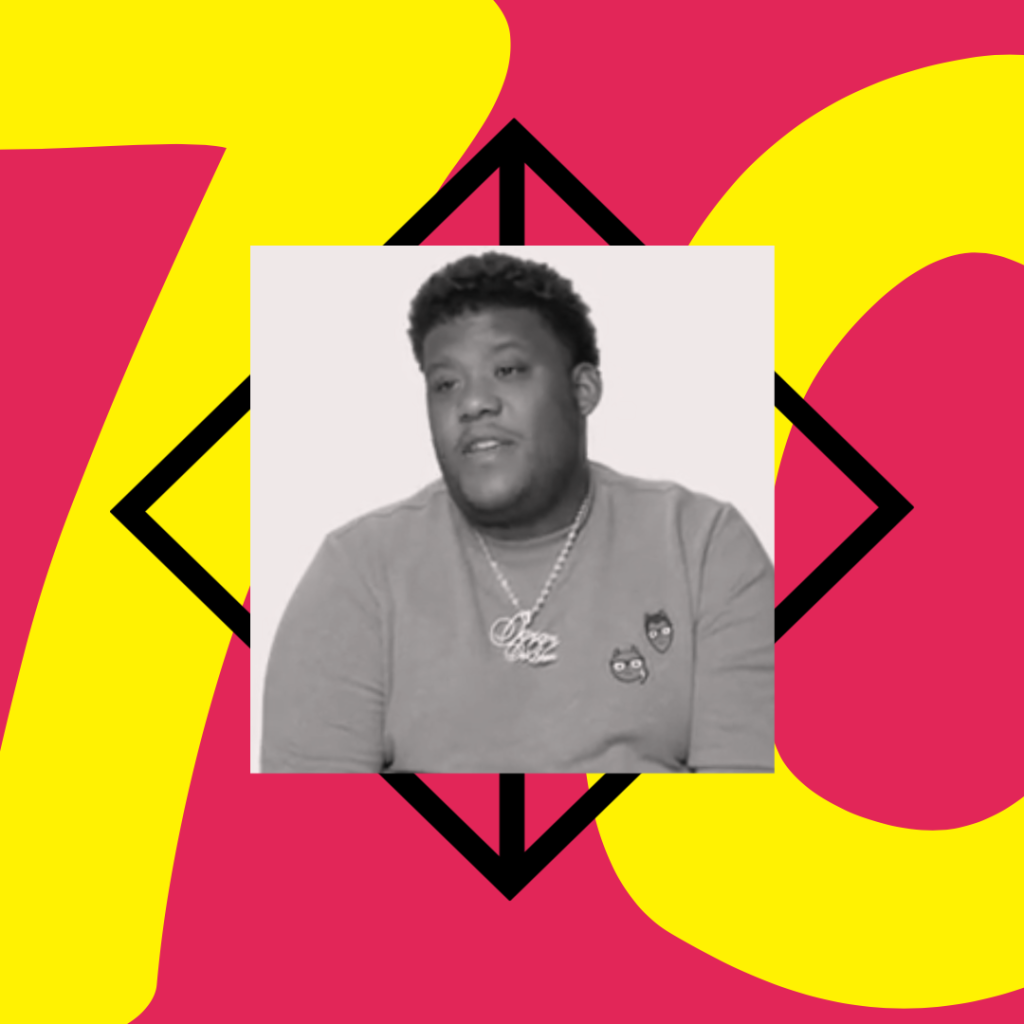On Saturday afternoon, a car pulled up in my alley to make a delivery to Po Boy Jim, a restaurant next door. I knew a car had pulled up because its stereo was so loud I mistook it for one of the frequent and beautiful rolling go-go protest parties that pass by here, staples of D.C.’s recent Black Lives Matter protests. But no, this was just a working man’s sedan.
I might have been annoyed that my Saturday was interrupted for these beats. OK, I was annoyed. But having recently written about nostalgia and the comfort of the familiar — ideas, narratives, music — I took a deep breath and got curious. I wondered if I was missing out on something. Was there something in this music that I might be interested in if was still a twenty-something restaurant worker. There was, after all, something in the music was driving this man to blast it at top volume.
It was hip-hop with hints of auto-tune shaping the vocals. It is a style that has a huge following, but one I haven’t trained my ear to distinguish good from bad in.
I don’t want to give the impression that I never listen to new music, or new hip-hop in particular. But I am biased against anything overly popular. I’m suspicious of music if it makes it to commercial radio.
When year-end best album lists came out from music critics at the end of 2019, I challenged myself to listen to as many albums as I could, aware of my tendency towards safe nostalgic listening. The top 100 lists on sites like BrooklynVegan and Pitchfork can range from death metal to country to hard rap, but are centered safely around indie rock, punk, Americana and the pop end of hip-hop. I found a few albums to broaden my playlist. When I came to a recommended hip-hop album, I focused on the poetry in the lyrics, looked for clever rhymes and storytelling. But I didn’t end up sticking with any of those albums after a first listen.
I had no idea where what I was listing to fit in to all that. Was it a commercial station? Was it critically acclaimed, due to show up on the best of 2020 lists?
I couldn’t make out the lyrics through the car’s bass, so I pulled up the Genius app on my phone and asked it what song was playing. It quickly matched with Atlanta rapper Derez De’Shon, showed me his face twisted in a grimace, and the track listing for an album called Pain 3. The album was too new to have its lyrics listed on Genius (but somehow not too new to be in the sound-matching algorithm).
I looked at the track listing and laughed. Each of its 19 track names could describe a week of this difficult 2020, including: Schizophrenic, Calm Down, Wake up, Permanent Skarz, Alot Changed, and Burn it Down. If I had nothing else to say at least I could riff on these titles, tie them to the pandemic and the state of the world.
But, who is this artist? What should I know about him? What lessons does he have for me?
I learn that his most well-known track is called Hardaway. It’s about the hard time he had coming up, including failing as a drug dealer:
So I was trying to sell it. I didn’t know what the prices was. It’s like, I was just givin’ that shit away. I wasn’t makin’ no money. So I asked my folk, and they’re like, “Damn, bro. You sellin’ this shit for $5?” So the shit I was supposed to make 100 dollars off of, I only made like 20, 30 dollars. So that’s what that line comes from. I really didn’t know what the fuck I was doing. That wasn’t for me.
I feel you, Derez. Every artist eventually learns we’re not meant for normal jobs.
And then I click play on this video, which shows a very different personality from the tough face in his Genius profile picture:
Now I’m invested. I want to know more about this guy. I scroll down and find his response to a question on writing style and flow:
The inspiration for this song really was just being put on the spot. It wasn’t a thinking process. It was just “get in there, stop thinking what you thinking about. You don’t need to think, just rap.” I went in there, and whatever was going on in my life at the time just came up without thinking about it.
I don’t ever write. I just go in, listen to the beat, vibe out, and say the first shit that come to my mind. If it sound right, keep it. If it don’t, cut it.
Exactly the inspiration I need for showing up to write and hit publish for 100 days.
But the bigger lesson here is to push to find out what curiosity can uncover. Listen to things you might not otherwise listen to.
I say this knowing full well that Trump’s Republican convention is going on tonight. I’ve been avoiding Trump’s speeches with far more dedication than my avoidance of unfamiliar music.

